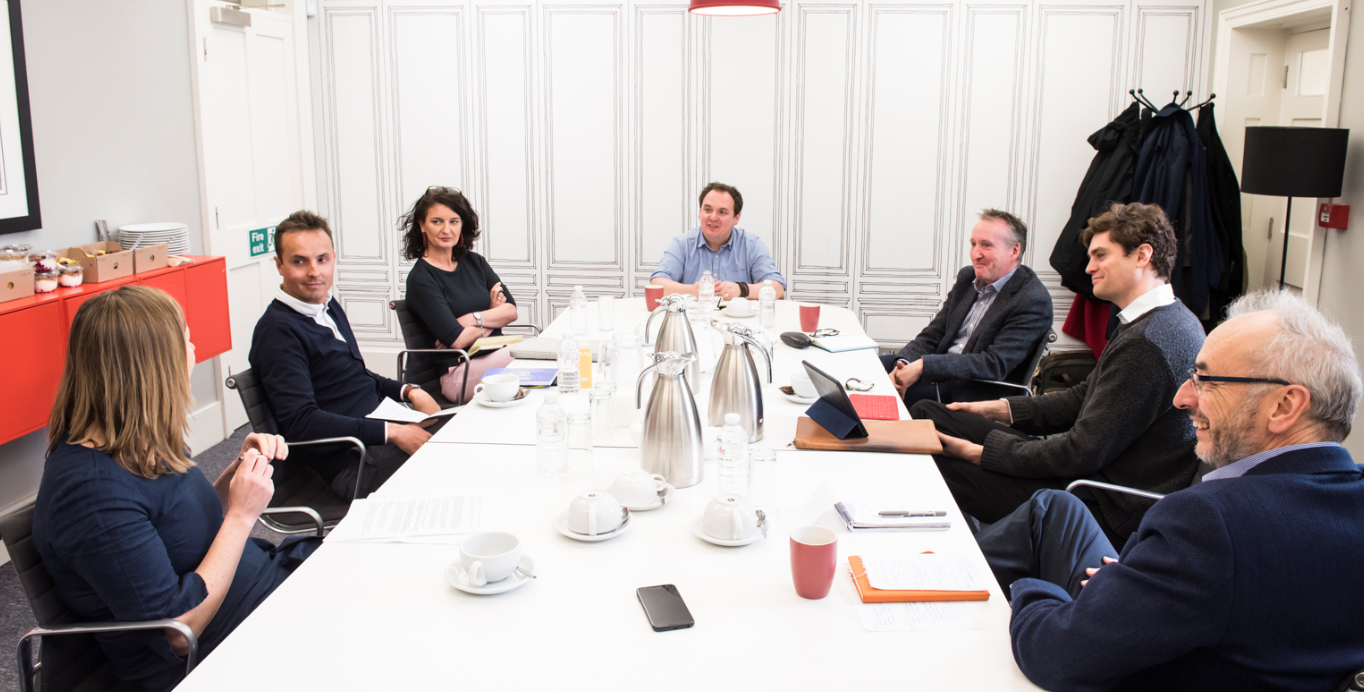For a story that recently appeared in Property Week, Yardi assembled a panel of industry experts to discuss various pressing topics in flexible workspace, including the much-analyzed position of the industry in a potential economic downturn.
Panelists
Gareth Evans, chief executive of BizSpace
Katrina Larkin, co-founder of Fora
Cal Lee, founder of WorkThere
William Newton, president of Wiredscore
Katie Whell, managing director at Pure Offices
Tony Freeth, director of coworking at Yardi
Simon Creasey, features editor at Property Week (chair)
Customer Service
Jumping right into it, our panel discussed the importance of elite customer service, or member service, in the coworking world. Some of the panel is not from a workspace background, so they provided unique perspective. Katrina Larkin explained that she worked in hospitality and therefore believes customer service is the most important factor to consider. She’s even partnered with one of the top hospitality schools in Switzerland in order to attract people from that industry.
With the power of technology growing by the day it seems, is customer service losing it’s face to face value? Gareth Evans believes face to face interaction will always have intrinsic value. “Tech is there to enable the journey -finding the space and booking it online. But the experience face-to-face is what takes your customer service to a different level,” he said.
Other respondents mentioned the power of mobile apps, booking technology, analytics, and social media, in relation to excelling at customer service.
Amenities
An interesting anecdote from William Newton, explained the value of internet in your Coworking space. He referenced a startup space in New York City that had many members, and didn’t lose a single one when they had sewage issues or air conditioning issues. However, when a fiber optic cable was cut, blocking internet access, every member stood up and went to neighboring cafes to work. Keep that in mind when valuing the connection in your space.
Like Cal Lee said, when someone is viewing five coworking spaces in a day, first impression is extremely valuable. You need to have an amenity that stands out, whether its a scent, or a terrace or anything else.
Landlords
Will we see more landlords entering the flexible workspace market?
Our own Tony Freeth explained some of the pros and cons, which coincided greatly with the data in our recent ebook. Freeth cited 22 Bishopsgate, one of the newest and most modern skyscrapers in London, which will have 150,000 sq ft of shared space in their building, managed by an external brand.
“One thing that flexible space brings is a high rate of churn, a high rate of footfall and a much higher per unit revenue. On the downside, it costs £60/sq ft to fit out a flexible space in some areas,” Freeth said.
Panelists agreed however, it’s not enough for a landlord to simply say they want to get into this world of coworking or flex space. Knowledge of the industry is the biggest key, and for now, still the biggest barrier to entry for many landlords.
Economic Downturn?
Something that has long been discussed in coworking circles, is the possibility of an economic slide greatly impacting this industry. It seems like the panel was confident in the stronghold that flexible workspace has created, and its ability to withstand a recession.
“During a recession, more people will come to the space because it gives them peace of mind that they can stop when they need to,” said Gareth Evans.
Great point from Newton, who said that in a time of recession, nobody will really look for less flexibility. He’s seen his leads rise 30% in the last year. So even if you lose customers, the heights the industry has reached will be greater than the percentage of members lost.
To read the full long-form panel discussion, with tremendous insight from all these experts, please click the link below.
